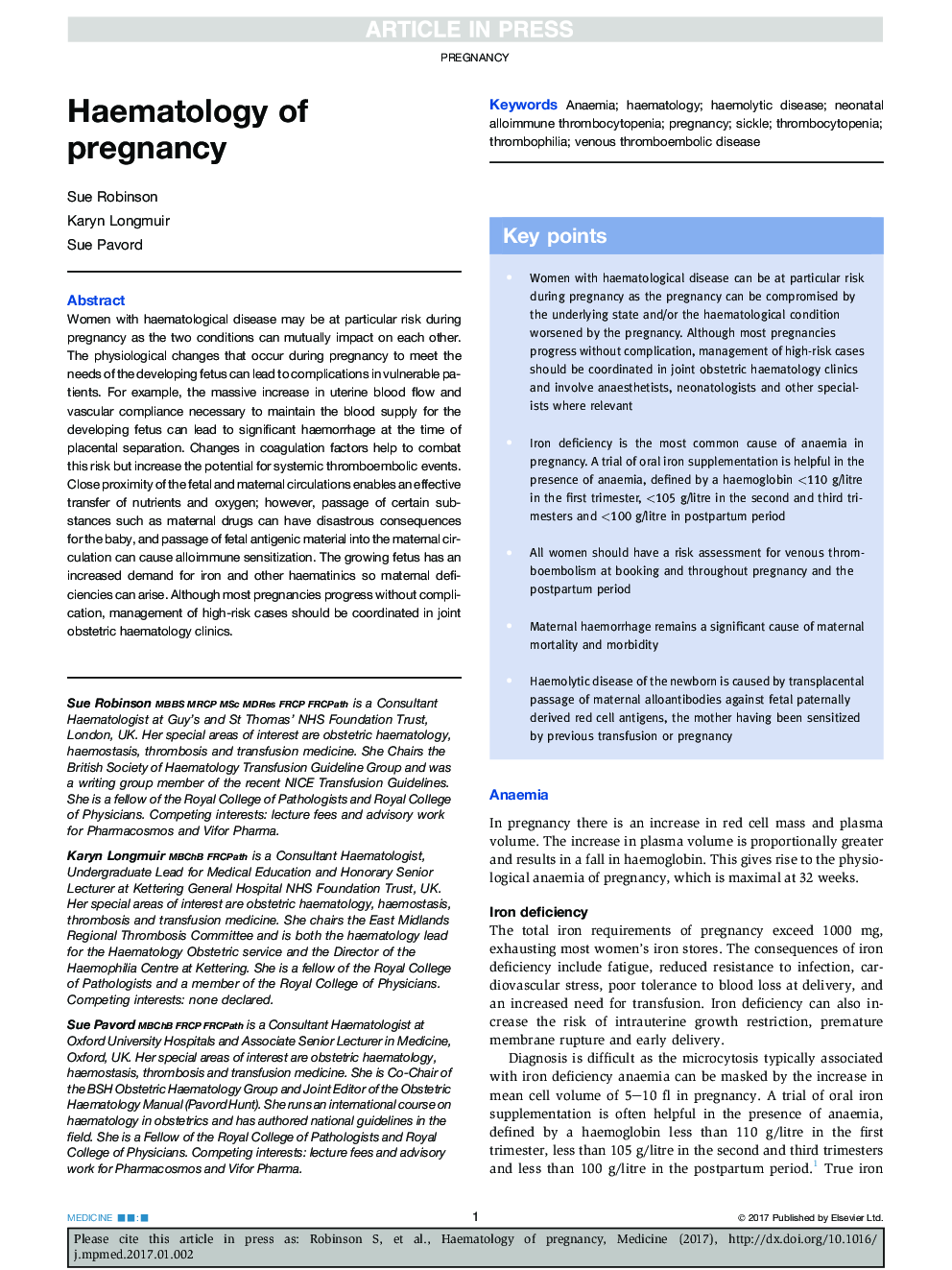| Article ID | Journal | Published Year | Pages | File Type |
|---|---|---|---|---|
| 5681287 | Medicine | 2017 | 5 Pages |
Abstract
Women with haematological disease may be at particular risk during pregnancy as the two conditions can mutually impact on each other. The physiological changes that occur during pregnancy to meet the needs of the developing fetus can lead to complications in vulnerable patients. For example, the massive increase in uterine blood flow and vascular compliance necessary to maintain the blood supply for the developing fetus can lead to significant haemorrhage at the time of placental separation. Changes in coagulation factors help to combat this risk but increase the potential for systemic thromboembolic events. Close proximity of the fetal and maternal circulations enables an effective transfer of nutrients and oxygen; however, passage of certain substances such as maternal drugs can have disastrous consequences for the baby, and passage of fetal antigenic material into the maternal circulation can cause alloimmune sensitization. The growing fetus has an increased demand for iron and other haematinics so maternal deficiencies can arise. Although most pregnancies progress without complication, management of high-risk cases should be coordinated in joint obstetric haematology clinics.
Keywords
Related Topics
Health Sciences
Medicine and Dentistry
Medicine and Dentistry (General)
Authors
Sue Robinson, Karyn Longmuir, Sue Pavord,
